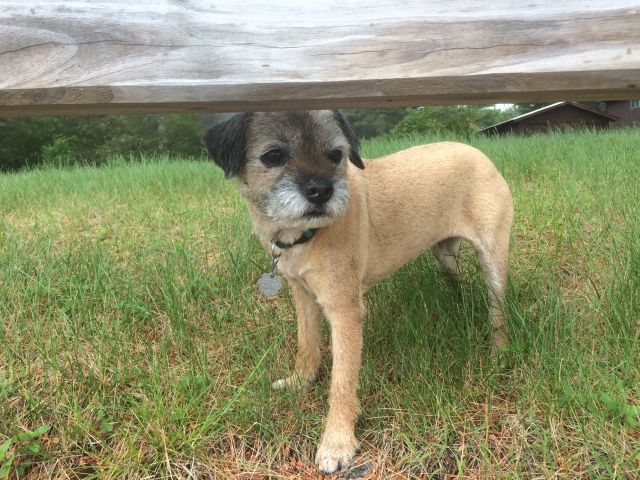IN MEMORY OF NALA

Decades after high school and college, my husband and I were packing up to move to our “dream house.” (Hint: that was four homes ago, which tells you dreams are not always what you think they will be.) As we pulled boxes from the attic, we found many of them contained ancient history—as in stuff from high school and college that each of us had been unable, previously, to let go.
Included in “my” boxes were stories I had written dating back to high school. To say they were awful would be kind. Oh, they were grammatically correct: complete sentences, properly punctuated, absent dangling participles, no misspellings, etc.—following all the rules that had been pounded into me since first grade (as in “See Jane run” vintage). The story lines had potential, but the telling was, well, the word “vacant” comes to mind. That is, the story was told with the amount of emotion that accompanied the sentences we typed over and over again in typing class. “The quick brown fox jumped over the lazy dog.” Anyone old enough to remember those typing exercises as we trained our fingers to type without looking at the keys?
Those typing class sentences were vacant. They contained no emotion of any kind. And neither did my high school writing. I recall thinking, as I re-read the stuff I ultimately discarded prior to the move, “Who the hell wrote this crap?”
The thing was, by my high school years—not counting the melodramatic responses to ordinary pre-teen and teen “traumas”—I had yet to experience and assimilate any genuine losses. My parents were alive and together. My siblings were alive and well. We had enough food and clothes. We lived in a decent house with a big yard. We weren’t rich, and there were lots of things I would have cited back then that I wished I had. But in the big scheme of things, we had everything we needed, and we knew we could depend on our parents for anything important. Like I said, no real lacks or losses.
That changed when the usual and less usual losses began. My first love and I parted ways, a loss that in retrospect seemed like a gift from my guardian angel, but at the time was my life’s biggest trauma to date. Then the losses piled on. (Editorial note: everyone experiences losses, and mine are not itemized to compete with anyone else’s. They just are mine. Each one changed my being at a cellular level to bring me to where I am now.) My beloved fiancé died in a freak accident. One by one my parents died. I loved and lost my first dog, then my second, each bringing its own heartbreak. Close friends died suddenly or after known illnesses.
These are the life experiences that, while tragic and painful beyond words, change who we are, how we relate to life and the world—and what we can bring to our writing.
A little over a week ago, my sweet border terrier died. She was the one who kept my feet warm during the writing of my first three novels, and barked only once in the twelve years from the day we adopted her when she was three, and LOVED running in the woods, and seemed reluctant to bother me when her aging bladder couldn’t make it through the night so she gently tapped me with her little paw, and snuggled between my husband and me on cold nights, and—most painfully—panted and paced through her last night because she was in such distress, because I didn’t want to let her go one second sooner than I absolutely had to. I held her as her little body relaxed as she was medicated and, finally, as the vet nodded that her heart had stopped beating. Should I have done it sooner? Should I have waited to see if she could have a few more good days? As I write this, tears of loss and pain pour down my cheeks.
I haven’t written a word since that day until this. But I will.
One of the greatest review statements for all my novels have focused on my ability to convey emotion and to evoke emotion in the reader, as in this review by Foreword Clarion: “This talented author knows how to evoke emotion, so much so that delving into her work hurts….”
I could not do that if I had never experienced great highs AND lows.
My current “low” stemming from loving and losing my sweet little Nala, will add to that feature of my writing, as it can for anyone’s. We must not be afraid of the emotional pain of loss, and we shouldn’t try to deny it. Don’t listen to anyone who says the equivalent of “snap out of it,” or “time to move on,” or—one of the worst offenses in my book—“it was only a dog.” While we have to keep functioning after a loss of any kind, don’t minimize it. Absorb it and let it add to your being.
Each loss becomes part of who we are, making us richer, more compassionate human beings. And that, in turn, can add depth and meaning and richness to our writing.
RIP My Sweet Nala
2002-2017


Giant hugs to you on your loss of Nala.
It’s true that with grief comes some powerful words.
Your tribute was moving. x
LikeLiked by 1 person
Thank you!
LikeLike
Beautifully written post! I’m so sorry for your loss. 😦
LikeLiked by 1 person
Thank you!
LikeLike